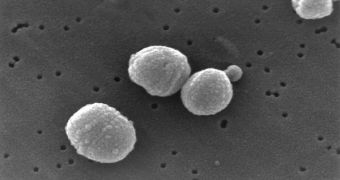A new scientific study concluded that people with asthma could benefit a great deal from a pneumococcal vaccine, as this would greatly reduce their chances of developing various affections related to S. Pneumoniae, including pneumonia, acute sinusitis, meningitis, septic arthritis, peritonitis, cellulites, and brain abscess. The find was published in the October 2008 issue of the Journal of Allergy and Clinical Immunology, by scientists at the Mayo Clinic, in Rochester, Minnesota.
An important factor to be considered before vaccination is the asthma patients' ability to react properly to the pathogen, warns Mayo Clinic researcher, Dr. Young J. Juhn. Seeing how all vaccines have a certain dose of the virus of bacteria they are trying to prevent, even small amounts of the streptococcus could trigger any of the conditions associated with it, if the receivers already have a respiratory condition.
Previous studies have shown that patients already suffering from asthma have a 200 percent higher chance of developing pneumonia due to bacterial infections than those exposed to the pathogen, but without pre-existing conditions.
Their research focused on some 3,941 test subjects, from the Rochester area, who were tracked between 1964 and 1983. Out of the 174 confirmed bacterial infection cases, the researchers discovered that people with serious pneumococcal conditions were 240 percent more likely to have asthma, with the risks going up to 670 percent for adults.
"Adults with asthma might be at increased risk of invasive pneumococcal disease, pneumococcal pneumonia, or both. The mechanisms underlying this increased risk of serious pneumococcal disease among individuals with asthma requires further study," Juhn's team noted in its report.
Although age groups from 2 to 64-years old were studied, the researchers were unable to draw a clear conclusion on the relations between asthma and S. pneumoniae in children. They said that the study was too limited to make scientifically-sound assumptions, and that further investigations were required, in order for them to provide predictions.

 14 DAY TRIAL //
14 DAY TRIAL //